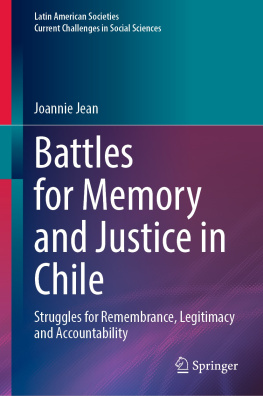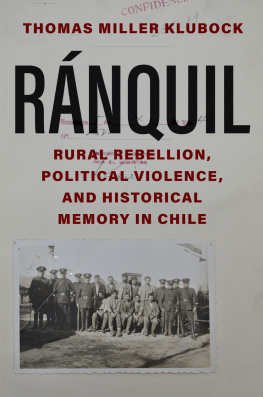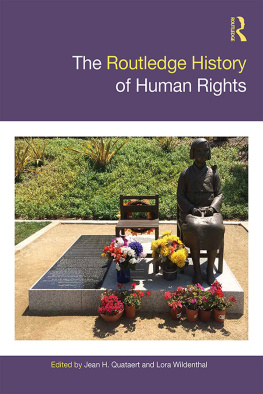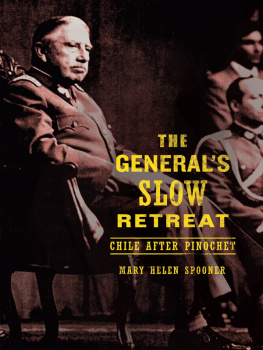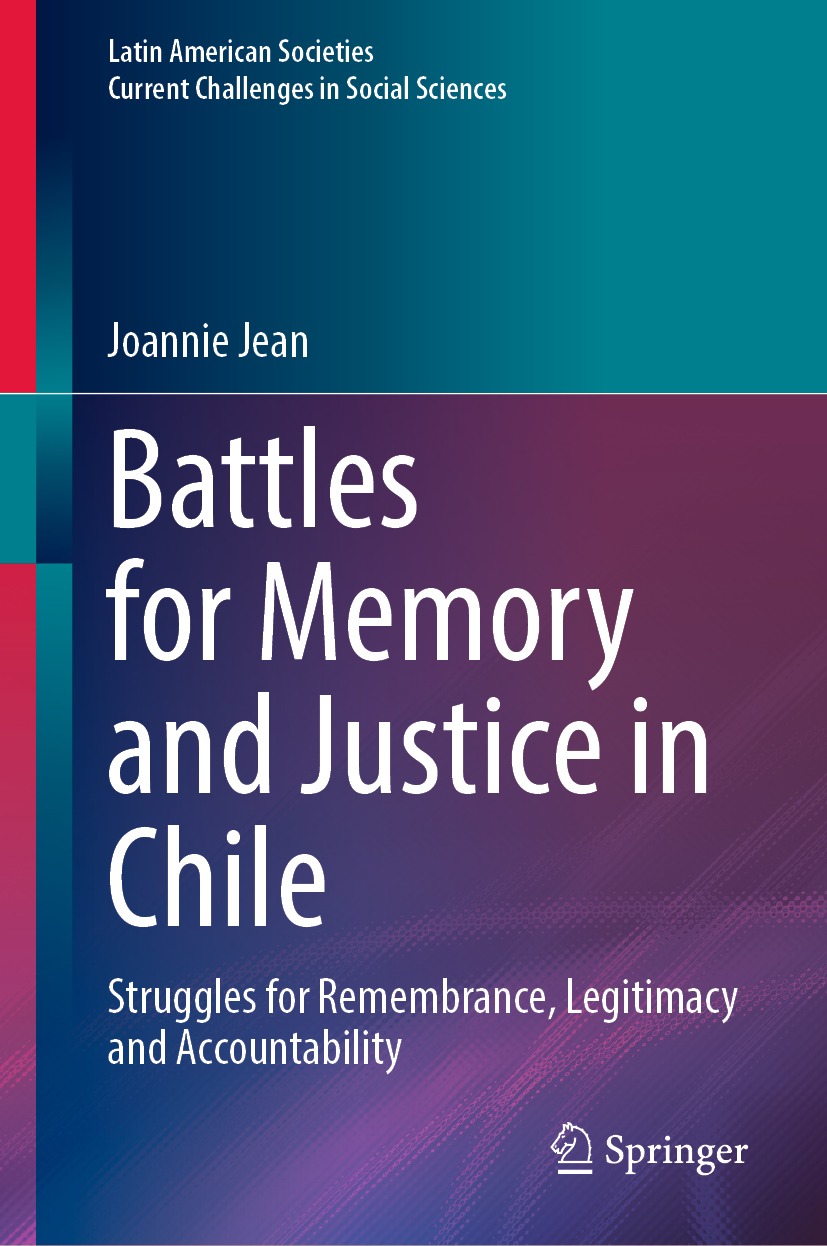Latin American Societies Current Challenges in Social Sciences
Series Editors
Adrin Albala
Institute of Political Science (IPOL), University of Braslia, Brasilia, Braslia, Brazil
Mara Jos lvarez Rivadulla
School of Social Sciences, Universidad de los Andes, Bogot, Colombia
Alejandro Natal
Seminar Inst., Civ. Soc. & Pub. Pol., El Colegio Mexiquense, Zinacantepec, Estado de Mxico, Mexico
This series aims at presenting to the international community original contributions by scholars working on Latin America. Such contributions will address the challenges that Latin American societies currently face as well as the ways they deal with these challenges. The series will be methodologically agnostic, that is: it welcomes case studies, small-N comparative studies or studies covering the whole region, as well as studies using qualitative or quantitative data (or a mix of both), as long as they are empirically rigorous and based on high-quality research. Besides exploring Latin American challenges, the series attempts to provide concepts, findings and theories that may shed light on other regions. The series will focus on five axes of challenges:
1) Social, Public and Environmental Policies
The first set of challenges revolves around the agenda setting in public and social policies in Latin America. This may include several topics like: redistribution policies, social mobility, marginalization. Another key item to be included deals with sources and consequences of environmental change especially human-related change. These consequences threaten not only Latin Americans material reproduction (e. g. by threatening water and food sources) but also deeply ingrained cultural practices and lifestyles. This section will, therefore, include proposals on environmental policies and matters. We welcome studies on a wide array of social, public and environmental policy making, implementation and effects.
2) Crime, Security and Violence
The second set of challenges stem from the persistence of violence and insecurity among Latin Americans, which consistently rank crime and insecurity at the top of their biggest problems. Crime organizations from youth gangs to drug cartels have grown and became more professionalized, displacing state forces in considerable chunks of national territories and, in some cases, penetrating the political class through illegal campaign funding and bribes. To this we should add, in some countries of the region, the persistence of armed insurgents fighting against governmental forces and paramilitaries, therefore creating cross-fires that threaten the lives of civilians. We welcome studies on a wide array of security and violence related issues.
3) Collective Action
A third theme has to do with how collective actors social movements, civil society organizations, and quasi-organized groups deal with issues that affect them. We welcome studies on a wide array of collective actors working on different issues, with different tactics, and diverse ideological stances.
4) Migrations
Political, economic, and environmental crises, as well as promises of better opportunities in other lands, have encouraged Latin Americans to migrate within their national borders or beyond them. While during the 1970s Latin Americans often migrated to other regions, nowadays national crises encourage them to seek other destinations in more nearby countries. We welcome studies on a wide array of topics and diverse theoretical perspectives.
5) Political Inclusion and Quality of Democracy
Dealing with social and ethnic minorities constitutes one of the most recurrent and unresolved challenges for the Latin American democracies. This topic includes the representation of the minorities, but includes also the study of the socio-political elites. We also welcome other studies on a wide array of issues regarding inclusion and quality of democracy in the region.
Both solicited and unsolicited proposals will be considered for publication in the series.
Joannie Jean
Battles for Memory and Justice in Chile
Struggles for Remembrance, Legitimacy and Accountability

The Springer logo.
Joannie Jean
School of Sociology and Anthropology Studies, University of Ottawa, Ottawa, ON, Canada
ISSN 2730-5538 e-ISSN 2730-5546
Latin American Societies
ISBN 978-3-031-25533-5 e-ISBN 978-3-031-25534-2
https://doi.org/10.1007/978-3-031-25534-2
The Editor(s) (if applicable) and The Author(s), under exclusive license to Springer Nature Switzerland AG 2023
This work is subject to copyright. All rights are solely and exclusively licensed by the Publisher, whether the whole or part of the material is concerned, specifically the rights of reprinting, reuse of illustrations, recitation, broadcasting, reproduction on microfilms or in any other physical way, and transmission or information storage and retrieval, electronic adaptation, computer software, or by similar or dissimilar methodology now known or hereafter developed.
The use of general descriptive names, registered names, trademarks, service marks, etc. in this publication does not imply, even in the absence of a specific statement, that such names are exempt from the relevant protective laws and regulations and therefore free for general use.
The publisher, the authors, and the editors are safe to assume that the advice and information in this book are believed to be true and accurate at the date of publication. Neither the publisher nor the authors or the editors give a warranty, expressed or implied, with respect to the material contained herein or for any errors or omissions that may have been made. The publisher remains neutral with regard to jurisdictional claims in published maps and institutional affiliations.
This Springer imprint is published by the registered company Springer Nature Switzerland AG
The registered company address is: Gewerbestrasse 11, 6330 Cham, Switzerland
Preface
This book is the result of my doctoral research. My fieldwork and the writing process took place before the explosion of social movements and unrest in Chile that led to the plebiscite. Which mean that the 20182022 period is unfortunately not covered but would be most likely to be covered in future investigations.
The past and its representation in the public space have been a source of conflict since the end of the Pinochet regime. Spectral-like, these matters reappear in the present in many forms as organizations of memory and human rights struggle over the meaning and importance of the past, as well as the legitimacy that must be granted to actors mobilizing this past in the public arena. However, these struggles and conflicts occur in particular sociopolitical dynamics and engage a multitude of actors with different representations of the past. This state of affairs calls for a reformulation of the conceptualization of the role of collective actors in order to highlight these differences in the way of representing the past, certainly, but also in the analogous and opposite strategies of doing so.
This book addresses the work of seven organizations of memory and human rights in Santiago, Chile, and the struggles in which they are engaged. From a multidisciplinary perspective, it undertakes, diachronically, the reconstruction of the main debates that have arisen around the themes of impunity, truth, and memory.

